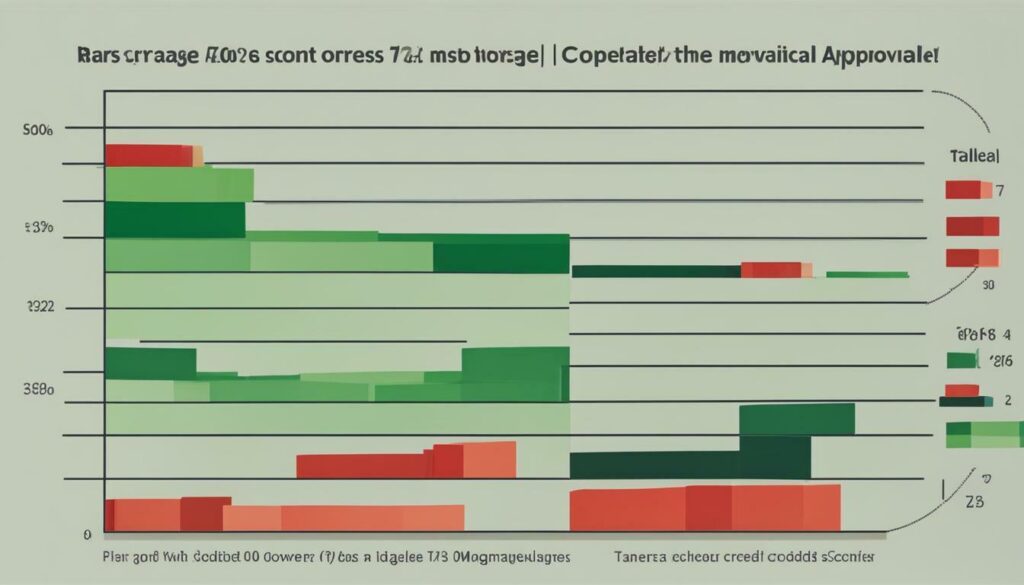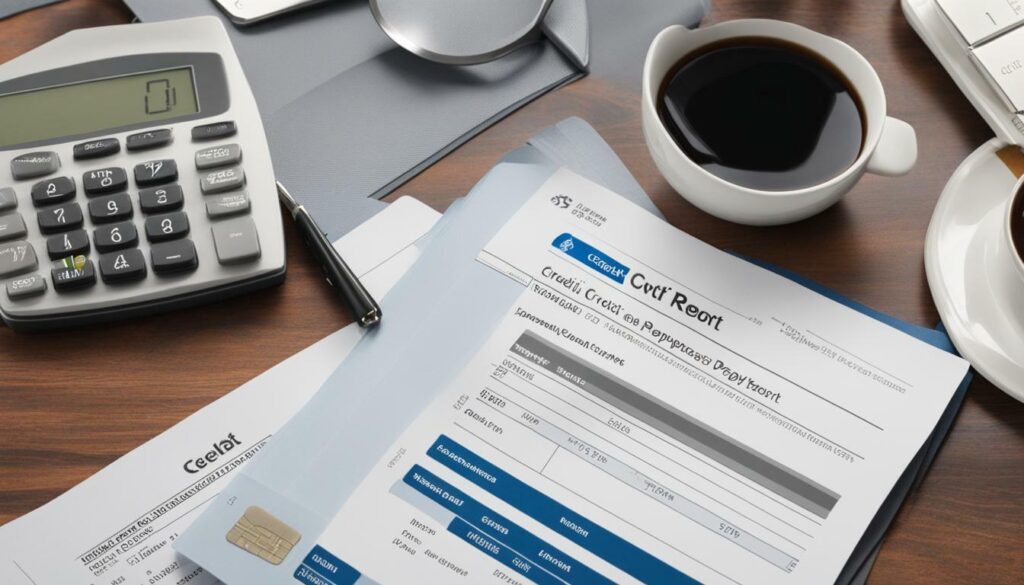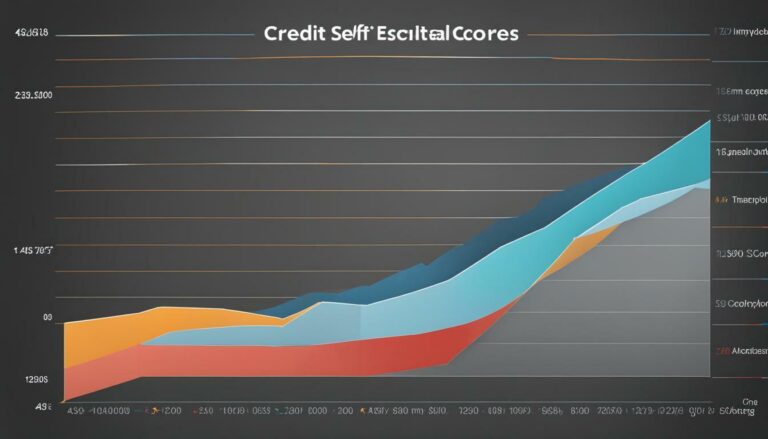Understanding the Role of Credit in Home Buying and Mortgages

When it comes to buying a home and securing a mortgage, understanding the role of credit is crucial. Your credit score, credit history, credit utilization, and creditworthiness all play a significant role in the homebuying process. Lenders use this information to assess your creditworthiness and determine the terms they offer, such as interest rates and loan amounts.
Having a good credit score is essential in obtaining a mortgage. A higher credit score often results in lower interest rates, which can save you a substantial amount of money over the life of your loan. Different types of mortgages have varying credit score and down payment requirements, so it’s important to know where you stand and what you need to qualify.
To ensure that your credit is in good standing, it is recommended to regularly check your credit reports for any errors or discrepancies. Your credit report provides a detailed record of your credit usage, while your credit score summarizes your credit profile and predicts your likelihood of repaying debts. Both aspects are taken into consideration by mortgage lenders when assessing your eligibility for a loan.
Improving and maintaining a good credit profile is essential for better mortgage opportunities. By paying your bills on time, reducing credit utilization, and managing your debt responsibly, you can enhance your credit score and increase your chances of securing a favorable mortgage. Additionally, it’s important to review your overall financial situation, including your income, employment status, debt-to-income ratio, and cash savings, as these factors also impact the homebuying process.
Remember, when it comes to buying a home, your credit plays a significant role in your ability to secure a mortgage. Understanding credit requirements, regularly checking your credit, and maintaining a strong credit history are all crucial steps in achieving your homeownership goals.
🚨 TUIC Errors + Low Credit Score?
CreditScoreIQ helps you build credit faster by reporting utility bills to all 3 bureaus—while you dispute errors.
Start Building Credit Today →- Having a good credit score is important in obtaining a mortgage with favorable terms.
- Regularly checking your credit reports for errors and discrepancies is recommended.
- Understanding the difference between credit scores and credit reports is essential.
- Improving and maintaining a good credit profile increases your chances of securing a favorable mortgage.
- Your overall financial situation, including income, debt-to-income ratio, and cash savings, also impacts the homebuying process.
The Importance of Credit Scores in Mortgage Approval
Your credit score holds significant sway over your mortgage approval and the interest rates you are offered. Lenders use your credit score as a key factor in determining your creditworthiness and determining the terms of your mortgage. A higher credit score typically translates to lower interest rates, which can save you a considerable amount of money over the life of your loan.
When it comes to home loans, different lenders have varying credit score requirements. Generally, a credit score of 620 or higher is considered good and may qualify you for more favorable terms. However, it’s important to note that lenders may have specific credit score requirements based on the type of loan you are applying for, such as conventional, FHA, or VA loans.
Your credit score not only impacts the interest rates you are offered, but it also affects your overall mortgage approval. A higher credit score demonstrates to lenders that you are a reliable borrower who is likely to repay the loan on time. This can increase your chances of getting approved for a mortgage and potentially give you access to better loan options and terms.
To improve your credit score and increase your chances of mortgage approval, it’s essential to review your credit report for any errors and take steps to improve your credit. This can include making all bill payments on time, paying down existing debts, and keeping credit utilization low. By actively managing your credit and maintaining a strong credit history, you can enhance your creditworthiness and position yourself for better mortgage opportunities.

Credit plays a vital role in determining your eligibility for a mortgage and the down payment you need to make. A good credit score is crucial, as it demonstrates to lenders that you are a responsible borrower. Lenders use credit scores to assess your creditworthiness and determine the interest rates and loan terms they offer. The higher your credit score, the lower your interest rate, which can save you a substantial amount of money over the life of your mortgage.
When it comes to credit and down payment requirements, different types of mortgages have varying criteria. For example, conventional loans typically require a higher credit score and a larger down payment compared to government-backed loans, such as FHA or VA loans. It’s essential to understand the specific requirements of the loan program you’re interested in to ensure you meet the necessary credit and down payment qualifications.
Improving your credit before applying for a mortgage can increase your chances of approval and help you secure more favorable loan terms. Start by checking your credit reports for any errors or discrepancies that could negatively impact your score. Addressing these issues can lead to an immediate improvement in your credit profile. Additionally, focus on paying your bills on time, keeping your credit utilization low, and managing your debts responsibly. These steps demonstrate your financial responsibility and can positively impact your creditworthiness.
Factors Affecting Creditworthiness in Home Buying
| Factor | Description |
|---|---|
| Credit Score | One of the most critical factors, it reflects your creditworthiness and determines the interest rates offered to you. |
| Down Payment | The amount you contribute upfront affects your loan-to-value ratio and demonstrates your financial commitment. |
| Income and Employment | Lenders consider your income stability and employment history to assess your ability to make mortgage payments. |
| Debt-to-Income Ratio | Your monthly debt obligations compared to your income give lenders insight into your financial capacity. |
| Cash Reserves | Lenders may assess the amount of savings you have as a buffer in case of unexpected expenses or financial difficulties. |
Your credit score and credit history, along with other financial factors, contribute to your overall creditworthiness in the home buying process. Understanding these factors and working to improve them can help you achieve your homeownership goals and secure the best mortgage options available to you.

To comprehend the impact of credit on the home buying journey, it’s essential to grasp the distinction between credit reports and credit scores. Your credit report is a detailed record of your credit usage, providing lenders with insights into your borrowing history, payment patterns, and debt management. On the other hand, your credit score is a numerical representation that summarizes your credit profile and helps lenders assess your creditworthiness.
When applying for a mortgage, lenders will review both your credit report and credit score to evaluate your eligibility for a loan. They rely on these factors to determine the level of risk associated with lending to you. A higher credit score indicates a lower risk, making you a more attractive borrower and potentially resulting in more favorable loan terms and interest rates.
To give you a clearer picture, let’s take a closer look at credit reports and credit scores:
Credit Reports
Your credit report includes information from various sources such as credit card companies, lenders, and collection agencies. It provides a comprehensive view of your credit history, including details about your open and closed accounts, payment history, credit inquiries, and any negative information like late payments or defaults. Reviewing your credit report regularly allows you to identify errors, dispute inaccuracies, and take necessary steps to improve your credit standing.
Credit Scores
Credit scores, on the other hand, are three-digit numbers that lenders use to assess your creditworthiness. The most commonly used credit scoring model is the FICO score, which ranges from 300 to 850. Factors such as payment history, credit utilization, length of credit history, credit mix, and new credit applications contribute to your credit score calculation. Higher scores indicate a lower risk of default, while lower scores may result in higher interest rates or even loan denial.
| Credit Score Range | Credit Rating |
|---|---|
| 800 and above | Excellent |
| 740-799 | Very Good |
| 670-739 | Good |
| 580-669 | Fair |
| 579 and below | Poor |
Now that you understand the difference between credit reports and credit scores, you can take steps to maintain and improve your credit profile. Regularly checking your credit reports, ensuring they are error-free, and managing your credit responsibly can help you achieve your goal of homeownership.

Strengthening your credit profile is essential for securing better mortgage opportunities and favorable terms. By taking proactive steps to improve and maintain your credit, you can increase your chances of getting approved for a mortgage and potentially save thousands of dollars over the life of your loan.
Here are some effective strategies to help you improve your credit scores:
- Check your credit reports: Request free copies of your credit reports from the three major credit bureaus – Experian, TransUnion, and Equifax. Carefully review each report for any errors or inaccuracies. Dispute any incorrect information and follow up to ensure they are corrected.
- Pay your bills on time: Late payments can have a significant negative impact on your credit scores. Set up automatic bill payments or reminders to ensure you never miss a due date.
- Reduce credit utilization: Aim to keep your credit card balances below 30% of your available credit limit. High credit utilization can indicate financial strain and lower your credit scores. Pay down debts and avoid maxing out your credit cards.
- Manage debt responsibly: Avoid opening new credit accounts unnecessarily. Focus on paying off existing debts and keep your credit utilization low. Only apply for new credit when necessary.
In addition to these strategies, it’s important to maintain a long-term perspective when it comes to improving your credit. Building a strong credit history takes time, so be patient and consistent with your efforts.
Monitoring your credit
To stay on top of your credit profile, regularly monitor your credit scores and reports. You can use online tools to track changes in your scores and receive alerts for any suspicious activity. By keeping a close eye on your credit, you can address any issues promptly and protect yourself from identity theft or fraud.
Remember, your credit plays a crucial role in the home buying process. It not only determines your eligibility for a mortgage but also influences the interest rates and loan terms you’re offered. By taking proactive steps to improve and maintain your credit profile, you’ll be better positioned to achieve your homeownership goals and secure a mortgage that aligns with your financial needs.

In conclusion, credit plays a pivotal role in the home buying journey, impacting mortgage approval, interest rates, and down payment requirements. A good credit score is crucial for anyone looking to purchase a home as it demonstrates to lenders that you are a reliable borrower. Lenders use credit scores to assess creditworthiness and determine the interest rates and loan terms they offer.
Having a higher credit score usually translates to a lower interest rate, which can result in significant savings over the life of the loan. Different types of mortgages have varying credit score and down payment requirements, so it is essential to understand the specific criteria for the loan you are seeking.
Before applying for a mortgage, it is recommended to check your credit reports for any errors and work on improving your credit. Your credit report provides a detailed record of your credit usage, while your credit score summarizes your credit profile and predicts your likelihood of repaying debts. Mortgage lenders consider both your credit score and credit report when assessing your eligibility for a loan.
Aside from credit, your overall financial situation, including income, employment status, debt-to-income ratio, and cash savings, also plays a significant role in the homebuying process. Therefore, maintaining a strong credit history and regularly checking your credit score are essential steps in achieving your homeownership goals.
FAQ
What role does credit play in home buying and mortgages?
Credit plays a crucial role in home buying and mortgages as it determines your creditworthiness as a borrower and affects the interest rates and loan terms available to you.
Why is a good credit score important in getting a mortgage?
A good credit score is important in getting a mortgage because it demonstrates to lenders that you are a reliable borrower, increasing your chances of approval for a loan.
How does a higher credit score impact mortgage interest rates?
A higher credit score usually leads to lower mortgage interest rates, which can save you a significant amount of money over the life of the loan.
What are the credit score and down payment requirements for different types of mortgages?
The credit score and down payment requirements for different types of mortgages vary. It is recommended to research the specific requirements for the type of loan you are interested in.
What is the difference between credit scores and credit reports?
Credit scores are numeric summaries of your credit profile, while credit reports provide detailed records of your credit usage. Both are taken into consideration by mortgage lenders when assessing your eligibility for a loan.
What steps can I take to improve my credit profile?
To improve your credit profile, you can start by checking your credit reports for any errors, paying bills on time, reducing credit utilization, and managing debt responsibly.
How often should I check my credit score?
Regularly checking your credit score is essential to maintaining a strong credit history. It is recommended to check it at least once a year, or more frequently if you are actively working on improving your credit.
Ready to Improve Your Credit?
Disputing TUIC errors is step one. Step two? Boost your score by reporting utility payments with CreditScoreIQ.
Get Started Now (Only $1 Trial) →3-bureau reporting • $1M identity insurance • Dark web monitoring






